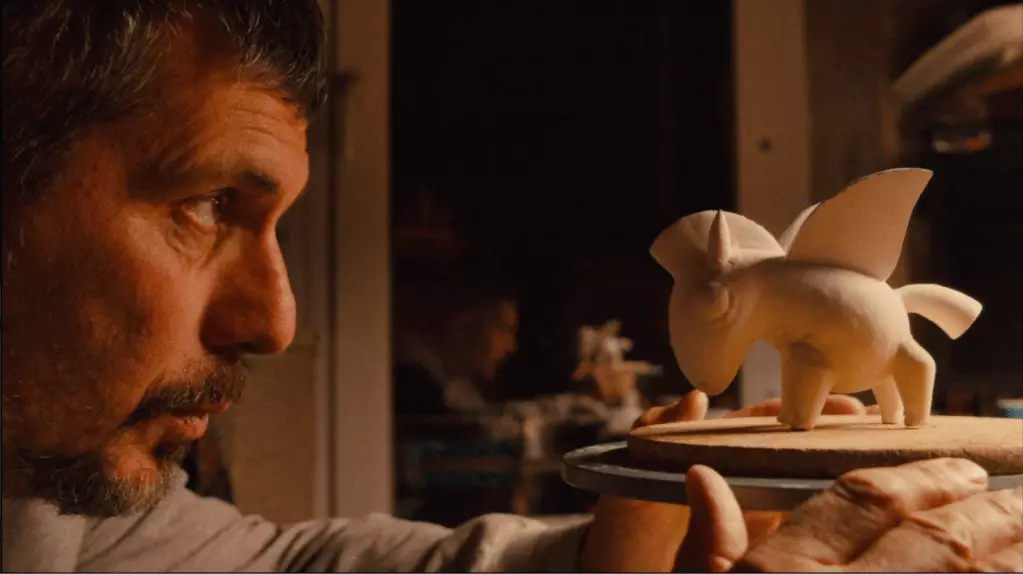The documentary feature *Porcelain War*, directed by Brendan Bellomo and Slava Leontyev, has made waves in the cinematic world, earning an Oscar nomination and winning the Documentary Feature award. Central to the film is a poignant assertion: “Ukraine is like porcelain. Easy to break, but impossible to destroy.” This metaphor encapsulates the resilience of the Ukrainian spirit amid the ongoing war and the Russian invasion, demonstrating how art serves as a potent form of resistance. Leontyev, a Ukrainian artist featured in the film, embodies this resistance by choosing to wield a camera instead of a weapon, symbolizing the profound impact of creativity in times of chaos.
Art has historically played a critical role in conflict zones, transcending words to evoke emotions and provoke thought. Leontyev’s choice to use his craft highlights a powerful narrative: that art can often be more impactful than physical confrontation. During discussions with acclaimed filmmaker Guillermo del Toro, Leontyev reveals his perspective on filmmaking as an essential tool for storytelling and resistance—his “new brush” for painting a brave picture of war-torn Ukraine. This stark juxtaposition between the brutality of war and the beauty of art stands as a testament to human resilience.
As del Toro reflects on the current cultural landscape, he warns of impending darkness where art’s value may be undermined. His observations resonate in an era where societal and governmental influences often diminish the arts, labeling them as impractical or irrelevant. Del Toro’s support of *Porcelain War* underscores the necessity of championing artistic expression, especially in troubling times. He frames resistance not merely as a physical battle but as an embodiment of spirit and creativity. By elevating art to a platform of influence, filmmakers like Bellomo and Leontyev remind audiences worldwide of its indispensable role in articulating the human experience.
The film’s journey continues with virtual and in-person screenings globally, pulling together a coalition of support from industry luminaries like Chris Columbus and Julie Taymor. Their participation signifies a shared commitment to amplify the message of *Porcelain War*: that art not only reflects reality but possesses the power to inspire change and resilience. In the wake of high-profile events, such as Donald Trump’s controversial leadership at the Kennedy Center, the discourse surrounding the significance of the arts becomes ever more critical. The juxtaposition of *Porcelain War*’s message against current political shifts emphasizes the necessity for artists to voice their realities through creativity.
*Porcelain War* emerges as a vital narrative for contemporary society, where the intersection of art and politics continues to evolve. As audiences engage with its themes of resilience and creativity amid turmoil, the documentary serves not just as a reflection of a nation at war but as a universal call to appreciate and protect the power of artistic expression. The film encapsulates the idea that while countries may crumble under conflict, the spirit of resistance—the essence of humanity—remains unbreakable, much like porcelain: fragile yet enduring. Through such powerful storytelling, *Porcelain War* challenges us to consider the vital role art plays in our collective consciousness and in the fight against oppression.


Leave a Reply